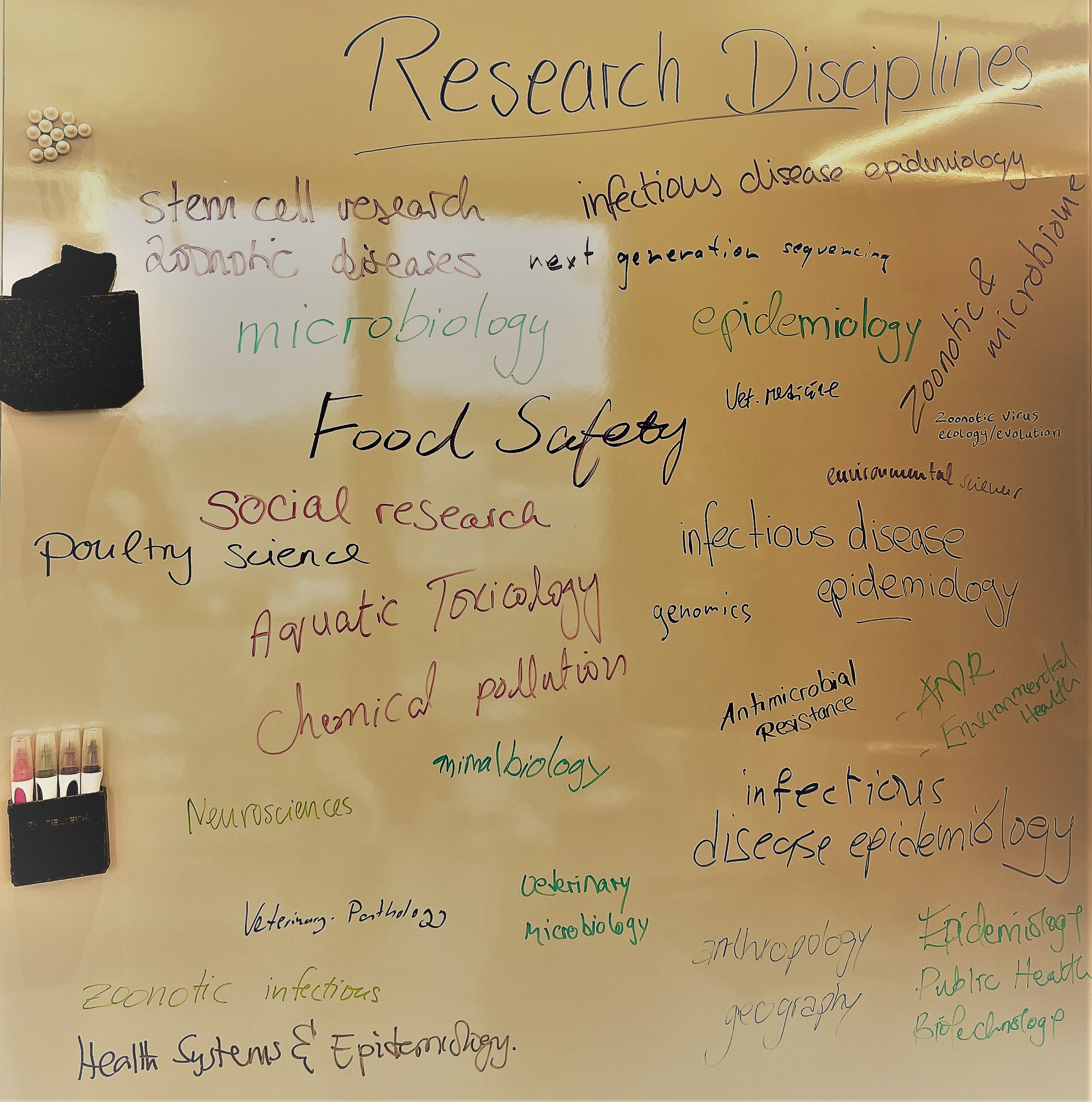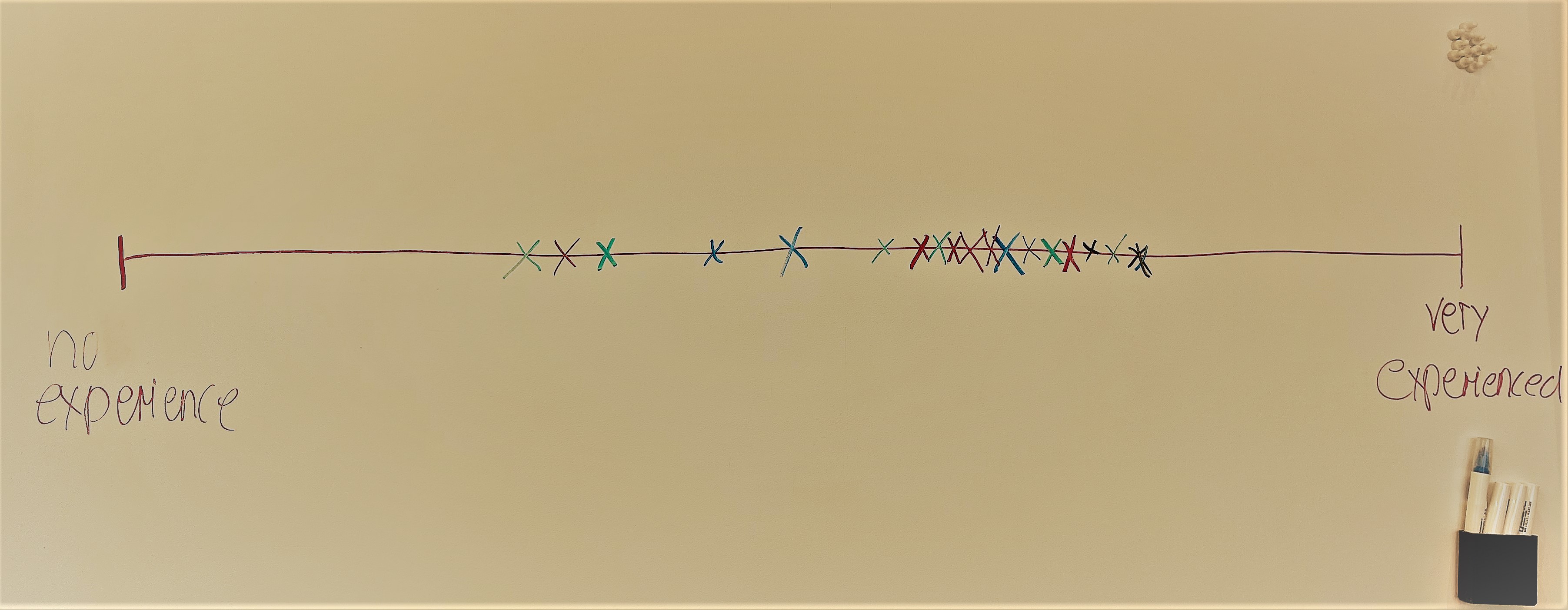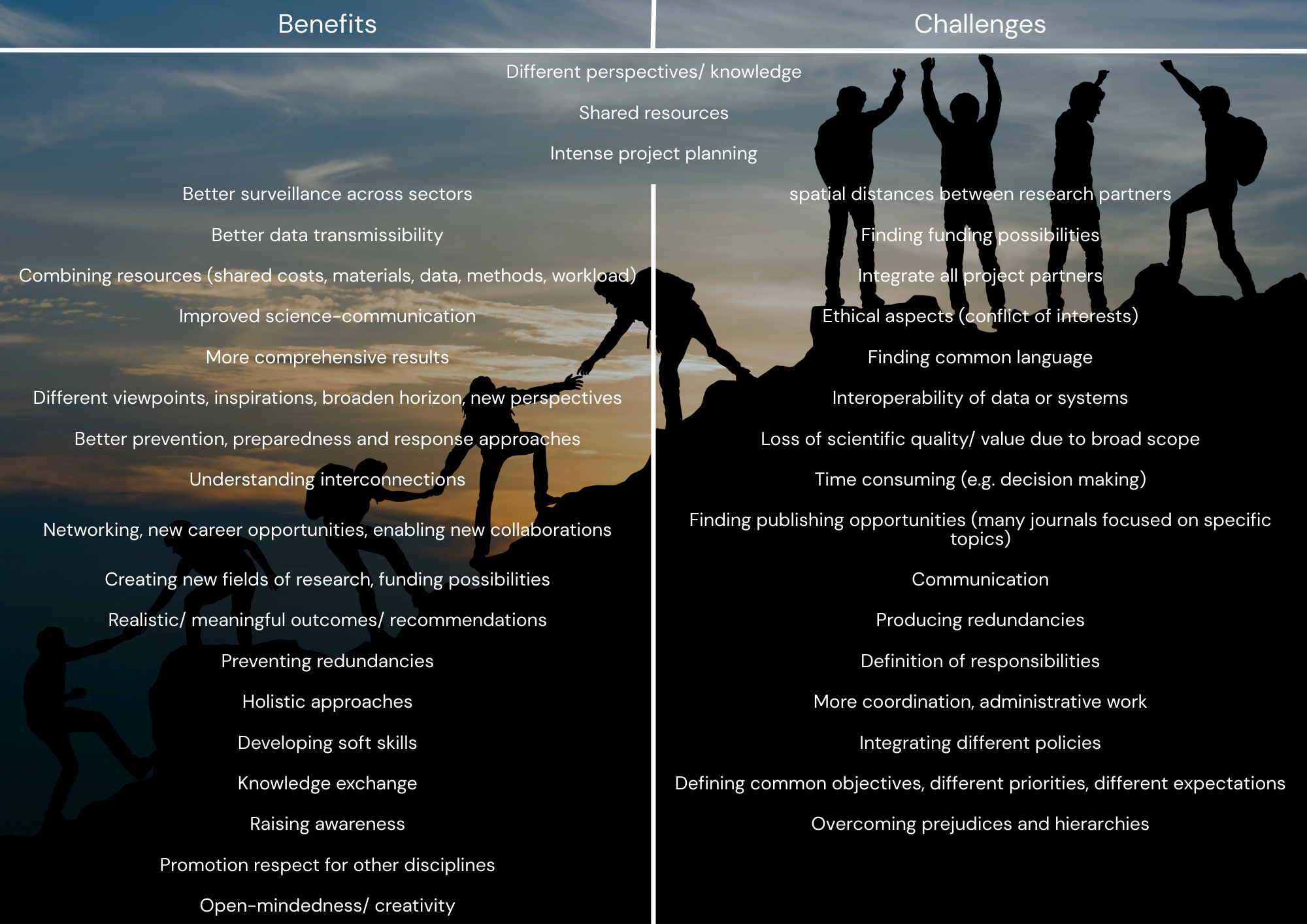One Health research has many facets and is very diverse in its design. However, one characteristic is a prerequisite: the interdisciplinarity of the research projects, as One Health cannot be realised by one discipline alone. The Spring School 2025 of the One Health Platform on 25 March in Hanover was therefore dedicated to the topic of "Interdisciplinary Scientific Networking". The event impressively demonstrated that practising interdisciplinarity involves effort, but also offers added value for research and can be seen as an opportunity by young scientists.
One Health research has many facets and is very diverse in its design. However, one characteristic is a prerequisite: the interdisciplinarity of the research projects, as One Health cannot be realised by one discipline alone. The Spring School 2025 of the One Health Platform on 25 March in Hanover was therefore dedicated to the topic of "Interdisciplinary Scientific Networking". The event impressively demonstrated that practising interdisciplinarity involves effort, but also offers added value for research and can be seen as an opportunity by young scientists.
The One Health Platform (OHP) organises an annual Spring School for young scientists. The choice of topics is based on the needs of young scientists who want to incorporate the One Health approach into their work. Interdisciplinarity is a key topic in the One Health field, which is why the Spring School 2025 focussed on it. The topic was already part of the programme when the participants introduced themselves, as the backgrounds of those present were extremely diverse. From neuroscience to epidemiology and food safety to anthropology, all disciplines were represented. In addition, most of the participants already had some experience of interdisciplinary collaboration (see figure 1).


Fig. 1: Expertise and previous experience in interdisciplinary work (self-assessment) of the participants
Inter- and transdisciplinarity
Dr. Dana Thal, Scientific Director of OHP at the Friedrich-Loffler-Institut, introduced the topic with a definition of interdisciplinarity and transdisciplinarity. The former describes the co-operation between different academic disciplines to achieve a common goal. It is usually applied to complex topics that cannot be analysed solely from the perspective of one discipline. Transdisciplinarity is sometimes used synonymously with interdisciplinarity. In some cases, however, the term is used to describe the co-operation between scientific and non-scientific actors.
Dr. Dana Thal, Scientific Director of OHP at the Friedrich-Loffler-Institut, introduced the topic with a definition of interdisciplinarity and transdisciplinarity. The former describes the co-operation between different academic disciplines to achieve a common goal. It is usually applied to complex topics that cannot be analysed solely from the perspective of one discipline. Transdisciplinarity is sometimes used synonymously with interdisciplinarity. In some cases, however, the term is used to describe the co-operation between scientific and non-scientific actors.
Advantages and challenges of interdisciplinary research
With a common understanding of the terminology, the participants worked in groups to develop the advantages and challenges of interdisciplinary collaboration in research. The result was an impressive list of points that highlighted various aspects and was fed by the diverse experiences and perspectives of the participants (see Fig. 2).

Fig. 2: Advantages and challenges of interdisciplinary collaboration in research identified by the participants
Interdisciplinary research in practice
Prof. Stefanie Becker (TiHo Hannover) and Dr. Anne Dierks (Lower Saxony State Health Office) each presented a specific research project to illustrate exactly what an interdisciplinary project in the One Health sector can look like. The RUMO project (Role of the ecoimmunity of Culex pipiens biotype MOlestus in the West Nile virus transmission cycle) presented by Prof. Becker aims to investigate the influence of pollutants in breeding waters on the immune system and vector competence of mosquitoes. An interdisciplinary team was brought together for this purpose, combining expertise in the fields of entomology, arbovirology, ecotoxicology and environmental sciences. Prof. Becker emphasised that the chemistry between the project partners had to be right for such a research project to succeed, because without mutual understanding and support in the event of problems arising, successful project implementation would be impossible. She cited administrative hurdles as the biggest challenge for implementation. In the LeGeMa (Legionella Genotype Map) project presented by Dr. Dierks, a map of the occurrence of various Legionella genotypes in environmental and drinking water samples in Lower Saxony is to be created in order to improve the monitoring and prevention of Legionella-associated infections. This is particularly relevant in the context of climate change and the associated higher temperatures and increased water treatment. The project is a transdisciplinary project with partners from science and the public health service (ÖGD). Dr. Dierks also cited difficulties in implementation at an administrative level as a challenge in implementing the project. Both examples showed that the structural and bureaucratic framework conditions in Germany often do not support the substantive requirements of One Health.(Legionella Genotype Map) project presented by Dr. Dierks, a map of the occurrence of various Legionella genotypes in environmental and drinking water samples in Lower Saxony is to be created in order to improve the monitoring and prevention of Legionella-associated infections. This is particularly relevant in the context of climate change and the associated higher temperatures and increased water treatment. The project is a transdisciplinary project with partners from science and the public health service (ÖGD). Dr. Dierks also cited difficulties in implementation at an administrative level as a challenge in implementing the project. Both examples showed that the structural and bureaucratic framework conditions in Germany often do not support the substantive requirements of One Health.
Diversity of disciplines
Which disciplines should be involved in the implementation of research projects in line with the One Health approach depends largely on the issue to be addressed. To give attendees an impression of the diversity of possible disciplines, several people presented their respective research discipline and the methods used there as well as potential interfaces to One Health. Maresa Neuerer from the University of Heidelberg kicked things off by presenting the social sciences, an area of science that is already very diverse in itself. The integration of social sciences into One Health research is relevant because health is largely determined by social factors. In addition, the social sciences provide important insights into the background and correlations of study populations and observed phenomena. Involving the social sciences right from the conception of a research project is therefore ideal. Richard Egelkamp from the Lower Saxony State Health Office pointed out that public health already incorporates many aspects of One Health and is often dependent on interdisciplinary collaboration when investigating outbreaks, for example. With large amounts of data at population level and access to a large number of samples, public health can make a valuable contribution to One Health research. In translational infection research, the DZIF (German Centre for Infection Research) provides an infrastructure that strives for interdisciplinary networking in this area of One Health. Dr. Nadja Käding from Lübeck University Hospital therefore gave a brief introduction to the DZIF and its activities for young scientists under the umbrella of the DZIF Academy. Another discipline that can be important in One Health research is psychology, for example in health communication. It is of great importance in the implementation of health research, as Dr Lars Korn from the Bernhard Nocht Institute for Tropical Medicine (BNITM) explained. After all, even the best vaccine is ineffective if no patient is willing to be immunised. Why we judge a decision to be "right" depends largely on ethical considerations. Particularly in One Health research, where many different interest groups come together, conflicts can arise in which applied ethics can contribute to a solution. Prof. Dr. Peter Kunzmann from the University of Veterinary Medicine Hannover presented the main features of this area of research and its applicability in the One Health context.
After this intensive ride through various different research disciplines and their connection to One Health, the speakers and the audience discussed what role the individual disciplines already play in One Health research, how and whether the current role should be expanded and how One Health research in general could be made more diverse.
Which disciplines should be involved in the implementation of research projects in line with the One Health approach depends largely on the issue to be addressed. To give attendees an impression of the diversity of possible disciplines, several people presented their respective research discipline and the methods used there as well as potential interfaces to One Health. Maresa Neuerer from the University of Heidelberg kicked things off by presenting the social sciences, an area of science that is already very diverse in itself. The integration of social sciences into One Health research is relevant because health is largely determined by social factors. In addition, the social sciences provide important insights into the background and correlations of study populations and observed phenomena. Involving the social sciences right from the conception of a research project is therefore ideal. Richard Egelkamp from the Lower Saxony State Health Office pointed out that public health already incorporates many aspects of One Health and is often dependent on interdisciplinary collaboration when investigating outbreaks, for example. With large amounts of data at population level and access to a large number of samples, public health can make a valuable contribution to One Health research. In translational infection research, the DZIF (German Centre for Infection Research) provides an infrastructure that strives for interdisciplinary networking in this area of One Health. Dr. Nadja Käding from Lübeck University Hospital therefore gave a brief introduction to the DZIF and its activities for young scientists under the umbrella of the DZIF Academy. Another discipline that can be important in One Health research is psychology, for example in health communication. It is of great importance in the implementation of health research, as Dr Lars Korn from the Bernhard Nocht Institute for Tropical Medicine (BNITM) explained. After all, even the best vaccine is ineffective if no patient is willing to be immunised. Why we judge a decision to be "right" depends largely on ethical considerations. Particularly in One Health research, where many different interest groups come together, conflicts can arise in which applied ethics can contribute to a solution. Prof. Dr. Peter Kunzmann from the University of Veterinary Medicine Hannover presented the main features of this area of research and its applicability in the One Health context.
After this intensive ride through various different research disciplines and their connection to One Health, the speakers and the audience discussed what role the individual disciplines already play in One Health research, how and whether the current role should be expanded and how One Health research in general could be made more diverse.
Competition and co-operation in the science system
An important parameter for the success of interdisciplinary research is the science system itself. Prof. Dr. Anna Kosmützky from Leibniz Universität Hannover is researching the international science system with regard to competition and cooperation. She explained that competition is an elementary component of research. In the past, this competition mainly consisted of the race for discoveries, whereas today the competition for funding takes centre stage. This type of competition favours different types of strategic cooperation, while others are held back. In addition, the pressure on young scientists in particular is high, as they often have the worse cards in the competition for funding.
An important parameter for the success of interdisciplinary research is the science system itself. Prof. Dr. Anna Kosmützky from Leibniz Universität Hannover is researching the international science system with regard to competition and cooperation. She explained that competition is an elementary component of research. In the past, this competition mainly consisted of the race for discoveries, whereas today the competition for funding takes centre stage. This type of competition favours different types of strategic cooperation, while others are held back. In addition, the pressure on young scientists in particular is high, as they often have the worse cards in the competition for funding.
Interdisciplinarity as a challenge and an opportunity
The Spring School 2025 was a very intensive event that made it clear how complex interdisciplinary research is and the high demands it places on researchers. Especially as the academic system itself and the bureaucratic and structural conditions of funding, training and responsibilities often present hurdles. Nevertheless, the event also made it clear why the effort is worthwhile and why practising interdisciplinarity in research offers numerous opportunities. It opens up many new fields of research and career opportunities, especially for young scientists. Interdisciplinarity also offers the opportunity to address the complex challenges of our time in line with the One Health approach.
